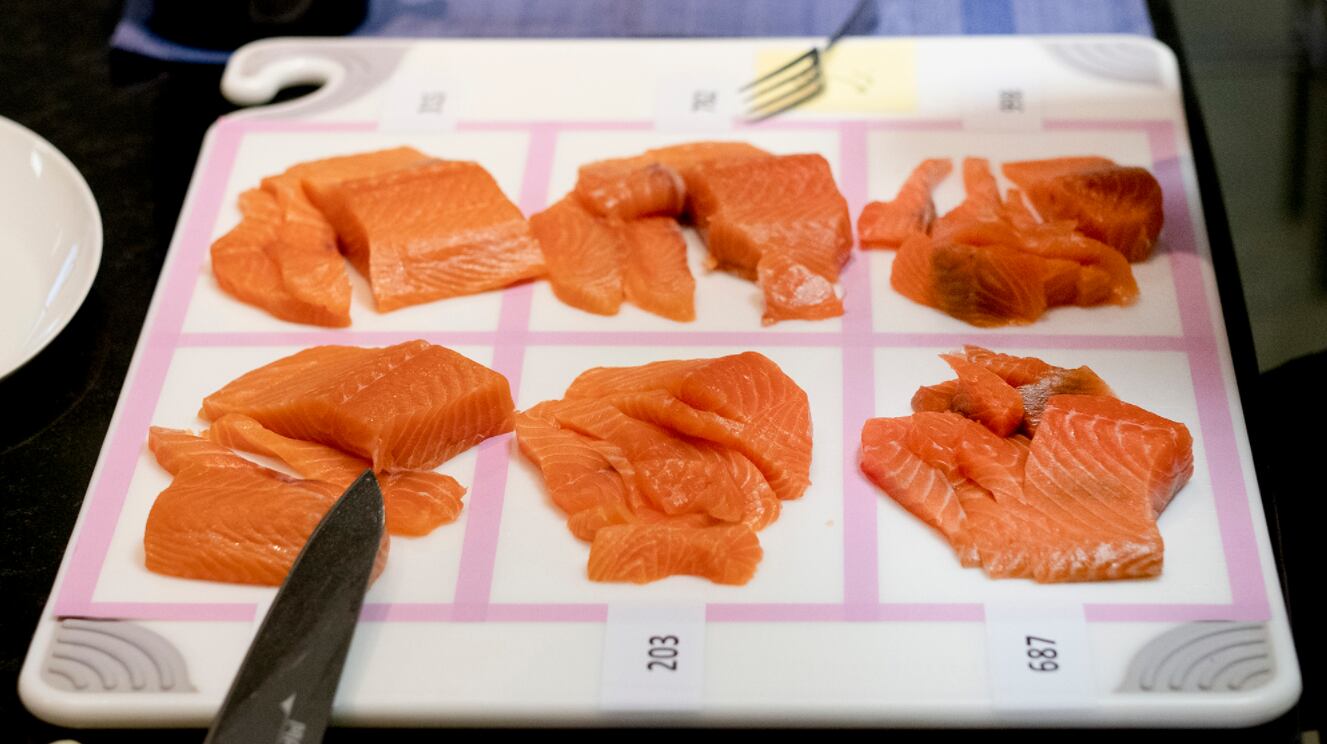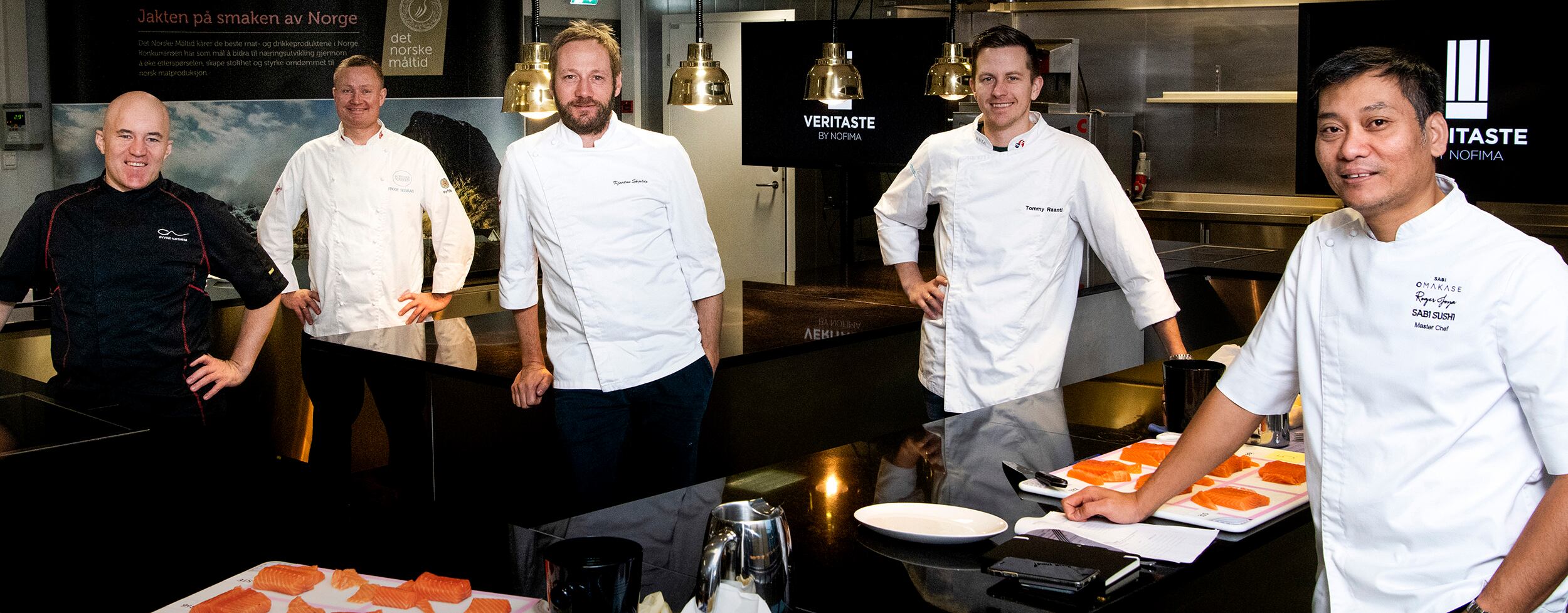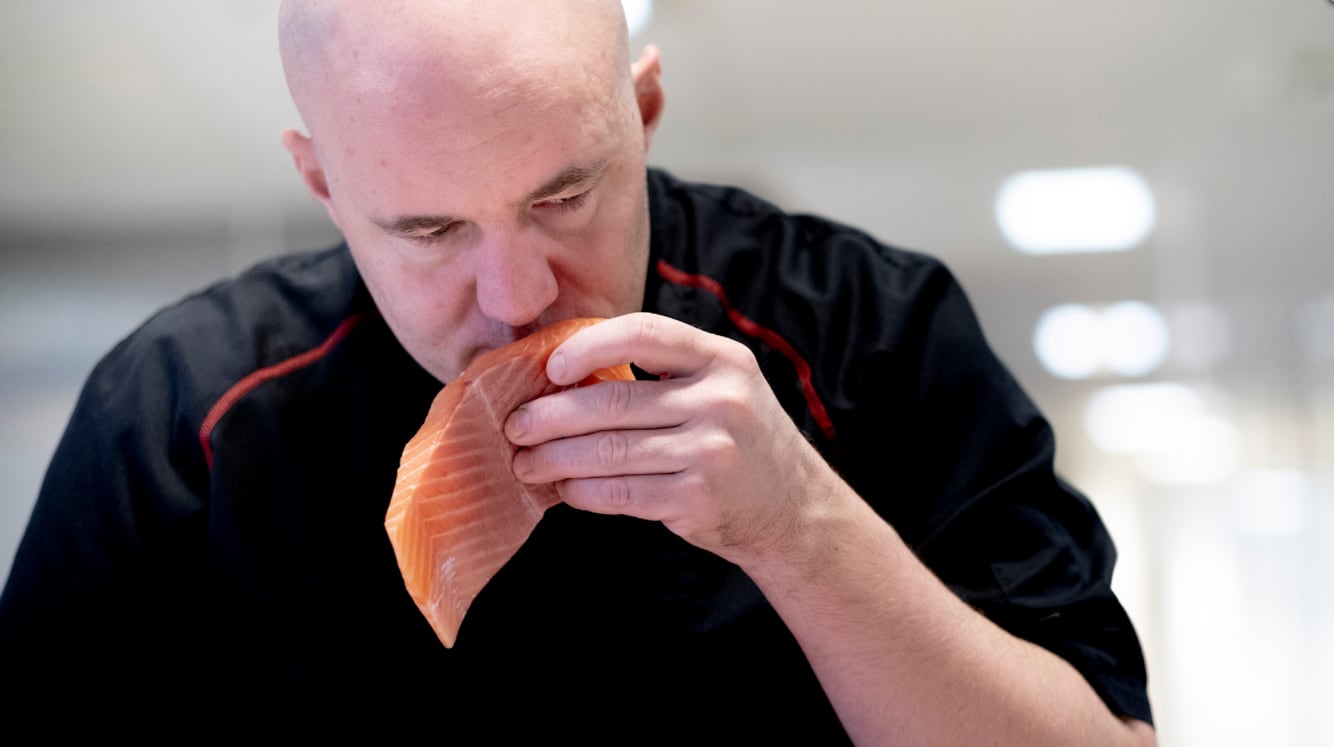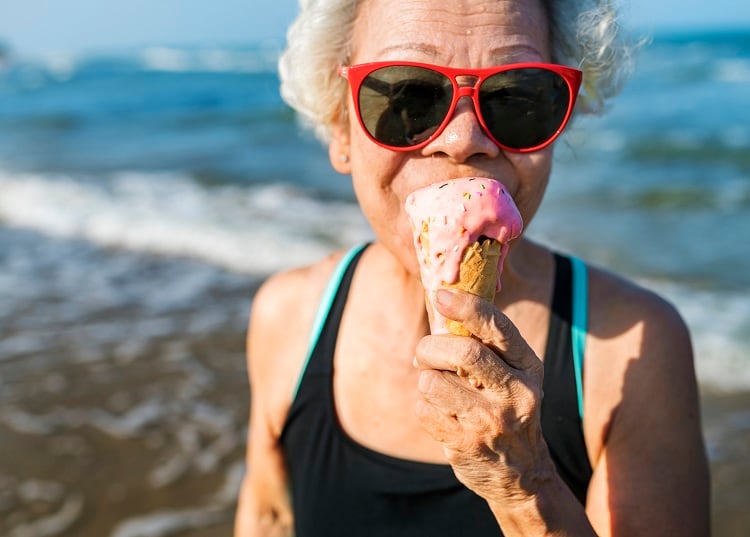The test, which was first trialled late 2020, was developed by researchers from the Norwegian Institute of Food, Fisheries and Aquaculture Research (Nofima).
Coined ‘Veritaste’, the test relies on the senses of renowned restaurant chefs to determine the quality of raw materials and food products.
Whereas the majority of quality tests provide an objective assessment, Veritaste’s assessment is somewhat more personal, explained Nofima adviser Stian Gjerstad Iversen.
“Veritaste provides the chef’s subjective assessment. The assessment is based on their ability to judge quality, from their daily work with dealing with such ingredients and products.”
Yes chef!
Veritaste was first put to the test to assess the quality of salmon.
Five experienced chefs – Øyvind Nesheim, Frode Selvaag, Kjartan Skjelde, Roger A. Joya and Tommy Raanti – were presented with a chopping board each, a knife, and a selection of numbered raw salmon pieces.
Without being told that each piece of salmon had undergone different processing after slaughter, the chefs were asked to assess its quality for restaurant preparation. According to the method, chefs can handle the raw materials as they see fit, including cutting it.
“It’s not necessarily all that easy to express what a chef considers good quality, but you can be fairly certain that a chef will have strong opinions,” noted Iversen.
While the test primarily assessed the quality of seafood, the Nofima adviser stressed the technology can be applied to a wide range of ingredients and finished products. “Veritaste can be used on all types of ingredients and products as long as you have a benchmark to compare the product against,” we were told.

‘Complements’ to the chef
The new chef test, however, should not be considered a substitute for Nofima’s professional sensory panel, said Iversen. This panel, which aims to provide an objective assessment of food products, consists of trained taste judges calibrated against one another.
Nofima claims it is the only sensory panel of its kind that helps food producers describe food characteristics in an ‘accurate’ and ‘neutral’ manner.
“Unlike the objective assessment of the sensory panel in which many nuances are presented, Veritaste provides the chef’s subjective assessment,” noted the adviser. “The two different ways of assessing food products cannot be compared, but they can complement one another.”
Nofima does not judge Veritaste to be significantly more time-consuming than its conventional sensory panel analysis. “Based on our experience, this method is not much more time consuming than regular sensory panels,” Iversen told this publication. “But it may require some more preparation, depending on the ingredient and what parameters you want to judge.”

What’s next on the menu?
The research institute stressed that Veritaste is applicable across the food industry – and will not just pique the interest of fresh food producers supplying to foodservice.
“Veritaste is aimed against all type of food producers who want an assessment of their product by the top chefs,” said Iversen. “It is based on whether the product's quality is desirable to the chefs. It increases the chances that the product has the opportunity to succeed in the market.”
In the future, the method could well be used to assess food further afield – outside of Northern Europe. “Veritaste is not limited to use only on Norwegian products.
“But to begin with, Veritaste will be used as in some of our research projects as well, sold directly as a service for those who want to use this method.”




